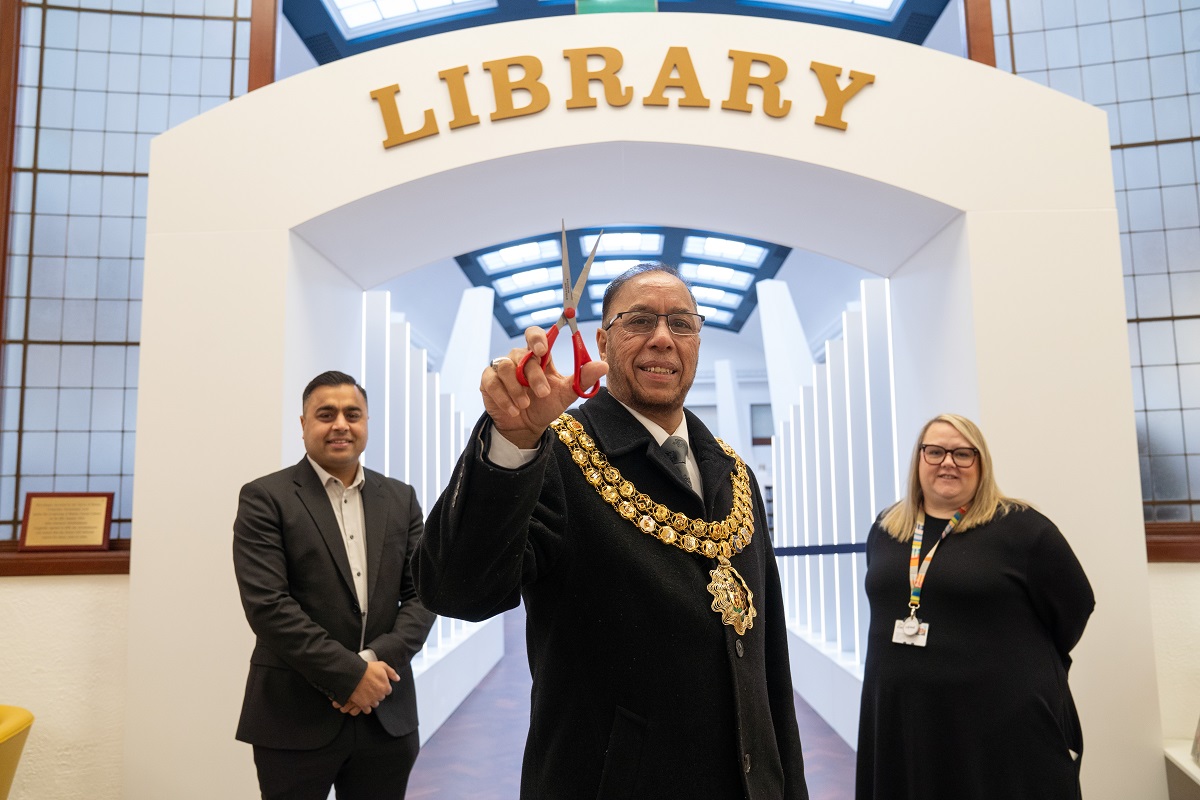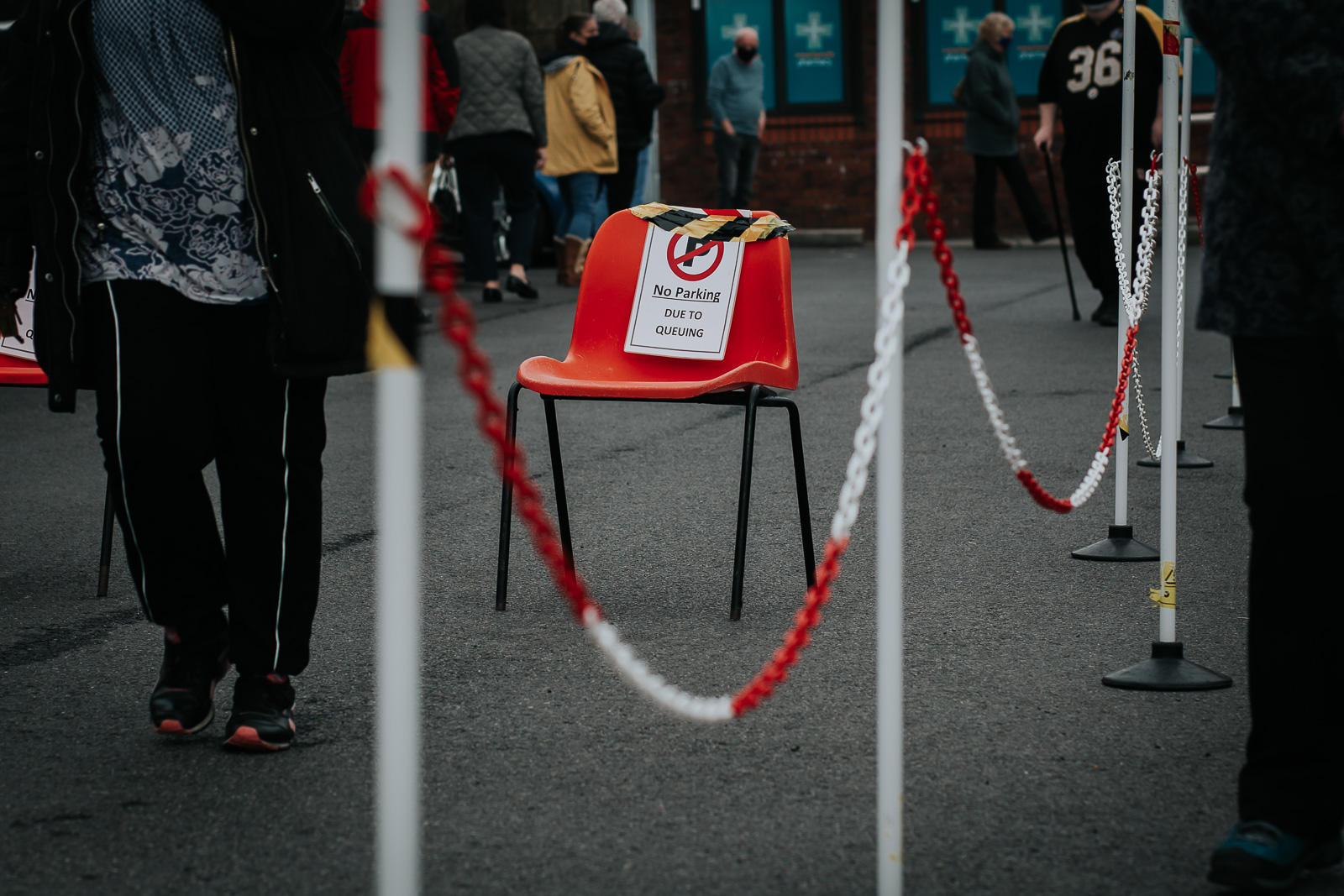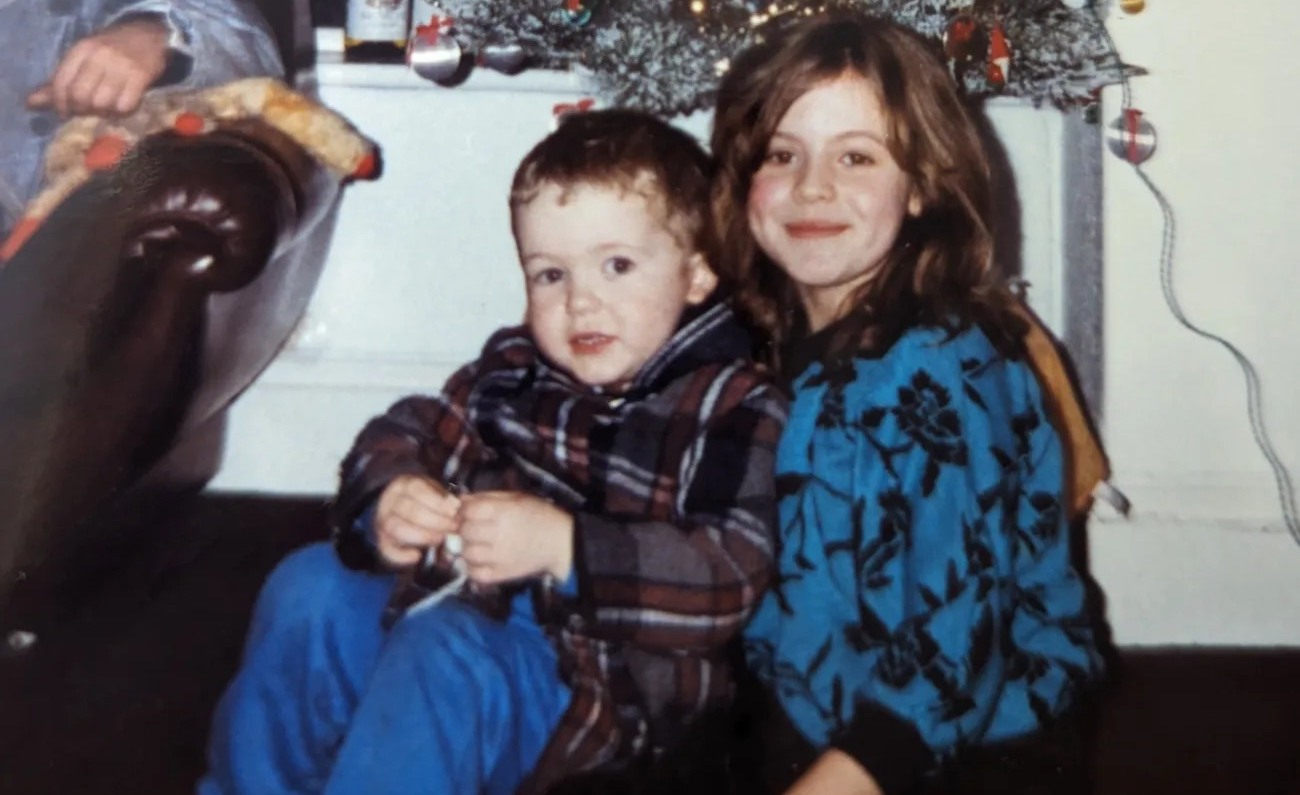Grassroots artists putting Bolton's culture front and centre
Local arts organisations are pushing for culture to be the catalyst for the town’s rebirth
Ask an artist how they’d reinvent Bolton and they spill over with ideas - shopping centres that blend commerce with culture, public spaces where local people can learn old skills to make new things, vibrant art trails that have tourists leaping on the train from Manchester, rundown buildings brought back to life through creative interventions.
But what all they seem to dispute, at least those who spoke to The Bolton Lead for this article, is whether Bolton needs to be reinvented at all. Evolved is a better word for what is to come, they say. There are already sparks of innovation that, with the right encouragement, will blaze into a bright new future.
“There is a change coming, I feel it in the air,” says Julie Levy, a sculptor and director of two independent art galleries in the town.
“There is a groundswell at the moment because there's a huge interest in the new cultural strategy.”
Donna Claypool, a textile artist and programme leader of Textiles and Surface Design at the University of Bolton, agrees: “There's an authentic energy to the arts scene and a strong connection between all the different organisations and groups, a conversation between each of them.
“There's a closeness as well that you might not get in a bigger city. And it's growing.”
With few large scale arts organisations in Bolton - Octagon Theatre is the sole receiver of Arts Council England’s NPO annual funding (meaning it is guaranteed £625,359 per year from 2023 to 2026) - most of the impetus for this growth is coming from grassroots organisations keen to transform the town’s cultural sector from the bottom up.
Much of the buzz comes from Bolton’s very active visual arts collectives and independent galleries including Neo Artists, founded as a not-for-profit in 2007, which has two floors of studios above a pawnbrokers and nail salon on Corporation Street in the city centre, and Standard Fine Art Collective, which was set up in 2016 to enable artists to show their work in group exhibitions.
Slightly further afield is Falcon Mill Artists Studios, run by figurative and landscape artist Pete Marsh and housed in a Grade 2-listed cotton spinning mill on Handel Street. Meanwhile, Julie Levy directs both Platform Gallery, within the former General Waiting Room at Bolton Station, and Hive Gallery, inside an unleased retail unit in the Market Place shopping centre.
“The Market Place management are interesting because they actually see the potential of working with the community groups and with the arts,” says Julie, whose background is in education.
“Unlike a lot of shopping centres, they understand having a gallery actually enhances the offer to their shoppers.
“We get a whole range of people in. We do get artists, obviously, but we also get shoppers dropping in just casually who perhaps have never even been to a gallery before and are really surprised they can find one in the middle of the Market Place just amongst the shops.”
Hive Gallery’s most recent exhibition [RE]connected, which showcased the results of the Maker Project from 2019, offers an unintended metaphor for Bolton’s potential. Ten UK-based makers were each given a reclaimed tubular bandstand chair to transform using their specific artisanal skills. Initially praised for their innovative design, the Model RP6 chairs were mass-produced throughout the mid-20th century by Cox and Co, when they were such a familiar sight in offices, community halls and bandstands that they became almost invisible.
Under the skilled-hands of the 10 makers however, they are reinvented into all sorts of unexpected and beautiful things, from designer Ava Cox’s smoked-oak cocktail cabinet to ceramicist Ian Rylatt’s gramophone. As relevant to the project as the end products is the process that went into creating them, which was recorded by the artisans taking part.

[RE]connected exhibition in Hive Gallery within Bolton’s Market Place shopping centre
Tom Sutton, the artist behind [RE]connected, says it’s important for Bolton to host exhibitions in spaces where people who may not feel welcomed in a traditional gallery will stumble upon them.
“You'll get people hanging around Hive Gallery looking at it but they’re terrified of coming in, to the extent we put a big welcome sign on the floor,” says Tom, who trained as a fine metal smith and furniture designer-maker and is now Assistant Teaching Professor at the University of Bolton’s School of the Arts.
“But people have engaged with the exhibition. You can see they appreciate it, even if they don't understand all of it because there were some quite conceptual pieces. They appreciate either the quality of making or the unique or creative aspects of the work. It’s a healthy thing for the town, and it's something that really should be pushed more.”
Artist-led community projects could offer at least a partial solution to the challenge of retailers abandoning the high street, an issue that’s certainly not exclusive to Bolton despite its abundance of discount stores and charity shops. A huge blow to the town was Marks & Spencer shutting its anchor store in the Market Place shopping centre in April 2023, although it is due to be replaced by Primark, which is relocating from Bradshawgate.
“For years, we've been crying out for a student shop in the town centre, where they could sell some of the creative pieces they make,” says Tom.
“We've got students who have won international awards and are working on industry standard projects, so why not be selling their wares to the general public in the town centre?
“There are a lot of empty units that we could use as arts bases for graduates or also for people who want to get involved with the arts - maybe people who just want to come and learn a skill and don't want to go to a college.

Sam Elliott (right) with Mayor of Bolton Cllr Mohammed Ayub and Cllr Nadeem Ayub at the opening of Bolton Central Library in January
“Manchester did it with the Northern Quarter. If you start creating those kinds of opportunities, the enterprise naturally comes from that because then you get professional artists and professional craftspeople and designers setting up and taking on units and then it generates revenue into the town.”
Big initiatives such as these cannot be achieved at grassroots level alone. They depend upon the support and financial backing of the local authority and other public bodies. Much of the visual arts scene has developed out of Bolton University’s School of the Arts, with its graduates and staff involved in many of the independent organisations.
But where does local government fit in?
Both Julie and Donna are optimistic about the relationship between Bolton Council and the town’s arts organisations, partly because of its recently released Cultural Strategy and partly because of the track record of one of its employees - Sam Elliott, Head of Service for Bolton Libraries and Museums and the council’s lead for culture.
The Cultural Strategy sets out a series of bold ambitions for the town. By 2030, it states, Bolton will be “a vibrant place built on strong cohesive communities, successful businesses and healthy, engaged residents. It will be a welcoming place where people choose to study, work, invest and put down roots.” Culture is central to achieving this, it continues, “including the arts,
performing arts, heritage, history, film and landscape”.
What then will it take to establish Bolton as “a new model of a ‘Creative Town’, where culture, heritage and the arts are fully embedded across the social and economic development of the borough”?
The strategy, drawn up between the council and external “vision partners”, sets out six detailed priorities that can be broadly boiled down to having a coherent vision for the town’s cultural section, stronger leadership, better collaboration between existing organisations, improved access for all, and attracting inward investment. It also includes an action plan for 2024, including how the council will measure success.
Sam says: “The council takes culture really seriously and recently has seen the connection it can have with regeneration, improving health and wellbeing and new skills, how it can support children and young people. It’s very supportive and very committed to delivering creative and cultural activities.”
Last winter’s Put Big Light On festival, a programme of light works by internationally-renowned artists including Luke Jerram’s Museum of the Moon and Dan Acher’s Borealis, demonstrated culture’s power to bring people together and inspire them.

Museum of the Moon by Luke Jerram at Put Big Light On 2023 in Bolton. Credit: Joel Chester Fildes
“We had such a great public response to that, people saying ‘it gives us hope for our town’ and ‘we're really excited about what this can do for Bolton’,” says Sam, who organised the festival.
“The council has seen that anecdotal response but also the sheer amount of people in the town centre enjoying the experience.”
At a time when money is scarce, culture also offers Bolton Council the opportunity to bid for funding pots available for regeneration. In January this year, its public library reopened after an 18-month, £4m refurbishment thanks to the government’s “Levelling-Up” Towns Fund.
Meanwhile, the adjoining Bolton Museum and Art Gallery underwent a £3.8m refurbishment in 2018, paid for by one-off capital funding, philanthropist Eddie Davies and the DCMS/Wolfson Museums and Galleries Improvement Fund. This created new galleries including one dedicated to its egyptology collections.
The Museum and Art Gallery actively supports the town’s arts scene, providing a temporary exhibition space to Bolton University’s School of the Arts, where currently [until March 31] Standard Fine Art Collective is showing its work alongside that of artists from Bolton’s twin town Paderborn in Germany. In April, the space will be taken over by Donna Claypool who is currently artist-in-residence at Bolton Library, responding to the fabric and patterns of the archive of cotton manufacturer Joseph Johnson.
There are still huge challenges, not least the UK-wide lack of arts funding - it’s worth noting that the artists from Paderborn had their trip to Bolton paid for by their own local authority.
But the drive to make culture central to the town’s rebirth seems genuine from its leadership to the grassroots.
Around 50,000 people turned up to Put Big Light On in 2023 and the festival is due to return this year. Bolton’s events calendar is slowly growing, with annual film and food & drink festivals. Bolton Octagon theatre, refurbished in 2021 with funding from Bolton Council and Arts Council England, continues to produce high quality shows that win awards and plaudits from national critics.
“You've got so many case studies of how it's worked in other places - the Guggenheim effect,” says Julie Levy.
“We've got examples from all over the world of how arts can really boost economic regeneration and make places come alive. It's just making people have the vision to see that could happen here.”
- You can learn more about Falcon Mill Artists Studios here
- You can learn more about Neo Artists here
- You can learn more about Hive Artists here
- You can learn more about the Octagon Theatre here
- You can learn more about Bolton Film Festival here
- You can learn more about Put Big Light On here
- You can learn more about Bolton Art Gallery, Library & Museum here
- You can learn more about Standard Collective here
- You can sign up to Laura Davis' North West arts newsletter Stored Honey here
You can see the previous newsletter we sent to our subscribers here
The Lead is now on Substack.
Become a Member, and get our most groundbreaking content first. Become a Founder, and join the newsroom’s internal conversation - meet the writers, the editors and more.





